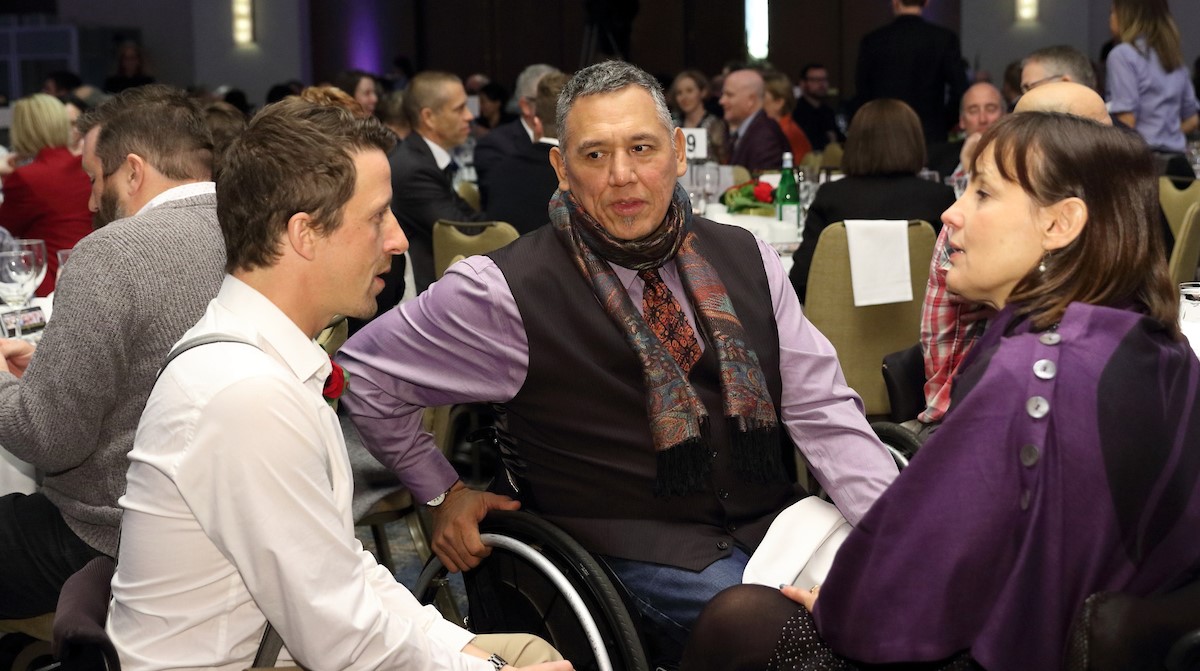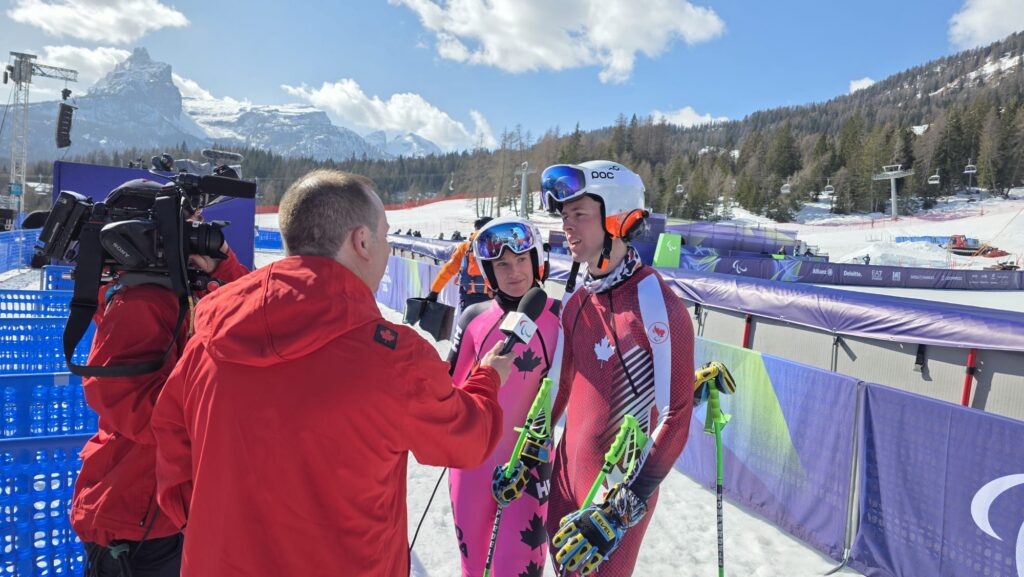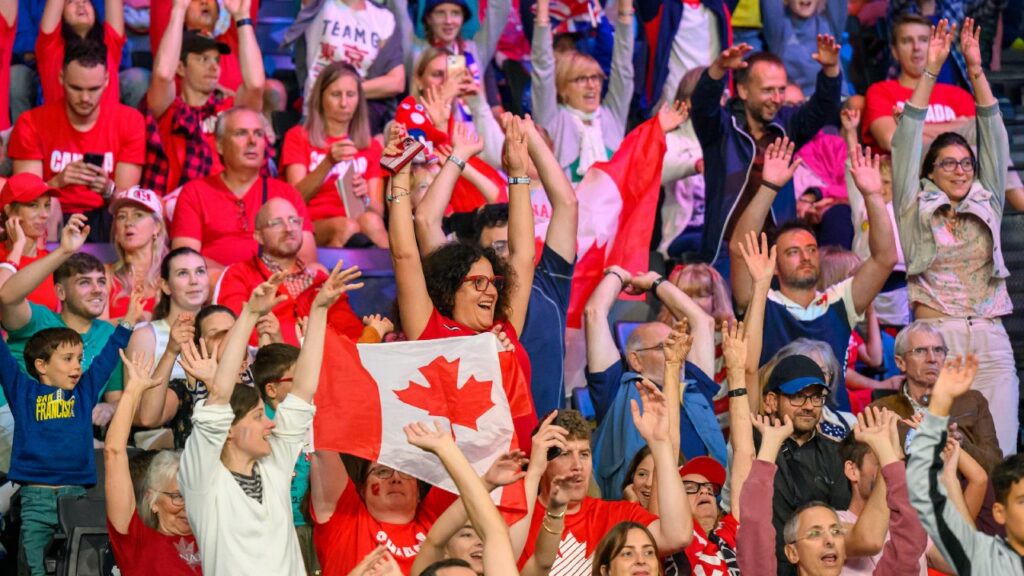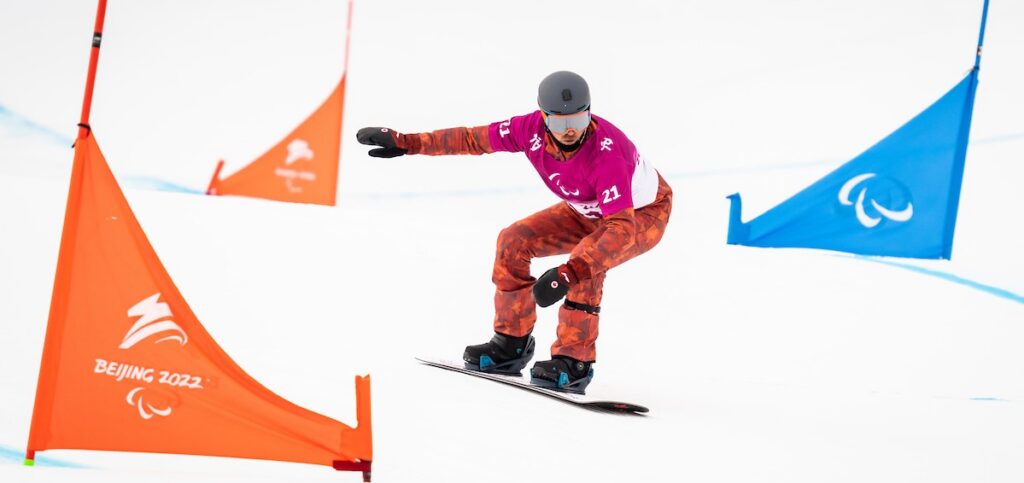Richard Peter aiming to introduce more Indigenous peoples with a disability to sport
Five-time Paralympian an ambassador for Bridging the Gap program in B.C.

Photo: Peter (middle) with his wife Marni Abbott-Peter and Josh Dueck
VANCOUVER – Richard Peter recalls when a wheelchair basketball team visited his high school when he was 15 years old.
In a wheelchair since age four, that appearance sparked a passion for sport that continues to this day. Just this week, Peter is packing his bags and heading to Edmonton for the Para badminton national championships.
Of course, it was in wheelchair basketball that Peter enjoyed his greatest glory in sport. He competed at five Paralympic Games helping Canada to gold in 2000, 2004 and 2012.
A member of the Cowichan Tribes of British Columbia, Peter has been a longtime advocate for sport for people with a disability, especially Indigenous people. He is an ambassador for BC Wheelchair Sports Association’s Indigenous Bridging the Gap (IBTG) program.
The program, now in its fifth year, aims to remove barriers to participation in sport for Indigenous individuals with disabilities across the province.
Per the BCWSA website, it “applies the components of the Bridging the Gap program through a cultural lens to ensure greater success in providing a positive experience for the participants and their communities.”
It is a needed initiative. According to the British Columbia Aboriginal Network on Disability Society, “the Indigenous population of Canada experiences a disability rate twice that of the general population, at approximately 30 per cent.”
One of Peter’s objectives is that Indigenous kids and adults avoid the unnecessary bumps in the road of getting into sport that he experienced, and that it can be an overall enjoyable experience.
‘’I want to make sure everybody goes out and has fun,” said Peter. ‘’I had some challenges. Racism was an issue for me at many different levels. That’s why I want to make sure that it’s culturally safe as well.”
Through the IBTG program, BC Wheelchair Sports looks to strengthen its relationships with Indigenous communities, increase its knowledge of Indigenous culture, and support Indigenous peoples with a physical disability to be active and get involved in wheelchair sports.
Peter was the perfect ambassador for the program. He has been involved in introducing Para sport to people with a disability for more than 20 years through the original Bridging the Gap program.
Professionally, Peter works for the Praxis Spinal Cord Institute as its Indigenous Peoples Liaison and he has previously worked for Spinal Cord Injury BC and BCWSA, roles in which he’s had the opportunity to give back to the Indigenous and disability communities.
He is also an athlete ambassador on the BC2030 feasibility team, which is exploring the possibility of hosting an Indigenous-led 2030 Olympic and Paralympic Games in British Columbia.
“Sport opened many doors for me, and I got a lot of support through the years, first from my family, the Cowichan Tribes in Duncan, BC Wheelchair Sports, BC Wheelchair Basketball, the Canadian Paralympic Committee.
‘’It’s been a lot of assistance to get to where I am today so that’s why I want to give back to my community, lend a hand.”
One of the messages Peter wants those that pursue Para sport to know is that there is support for them whether they play for fun or have a passion to get to the highest level.
Some of the IBTG initiatives includes providing access to equipment and opportunities to try wheelchair sports in their own communities. While COVID-19 derailed some visits over the last three years, Peter says the program plans to travel to more remote communities in Northern B.C. in the future.
“I wouldn’t be here today if that wheelchair basketball team didn’t come to my school and community and introduce me to sport.”



"*" indicates required fields
"*" indicates required fields